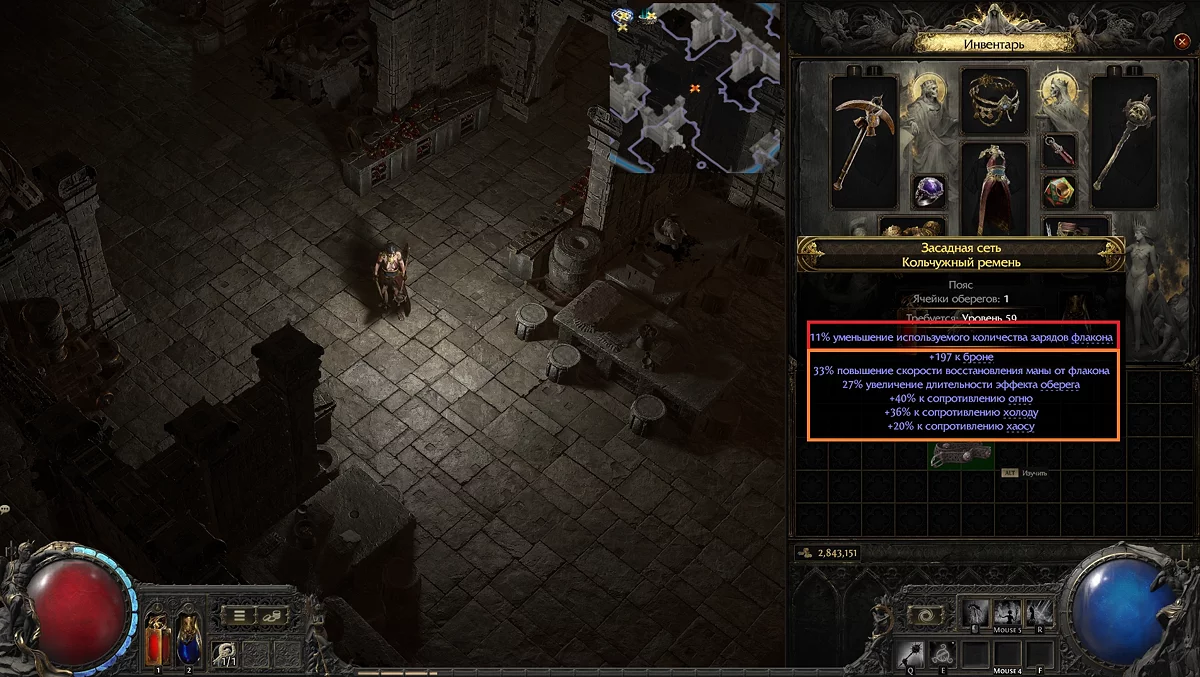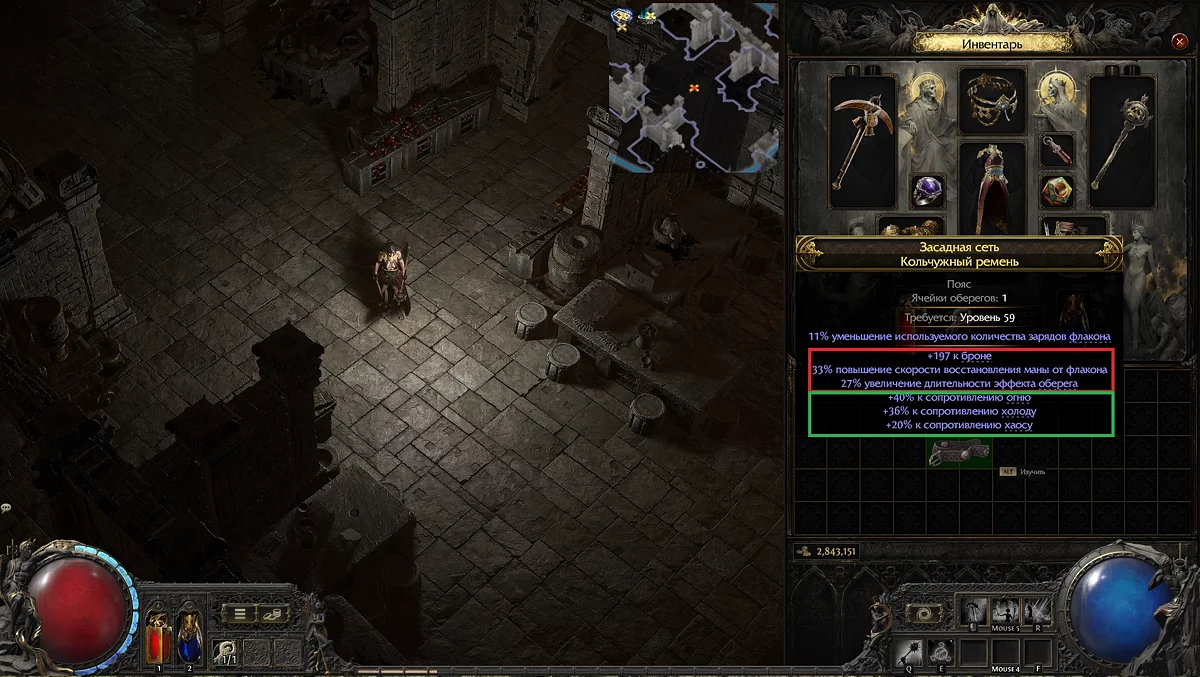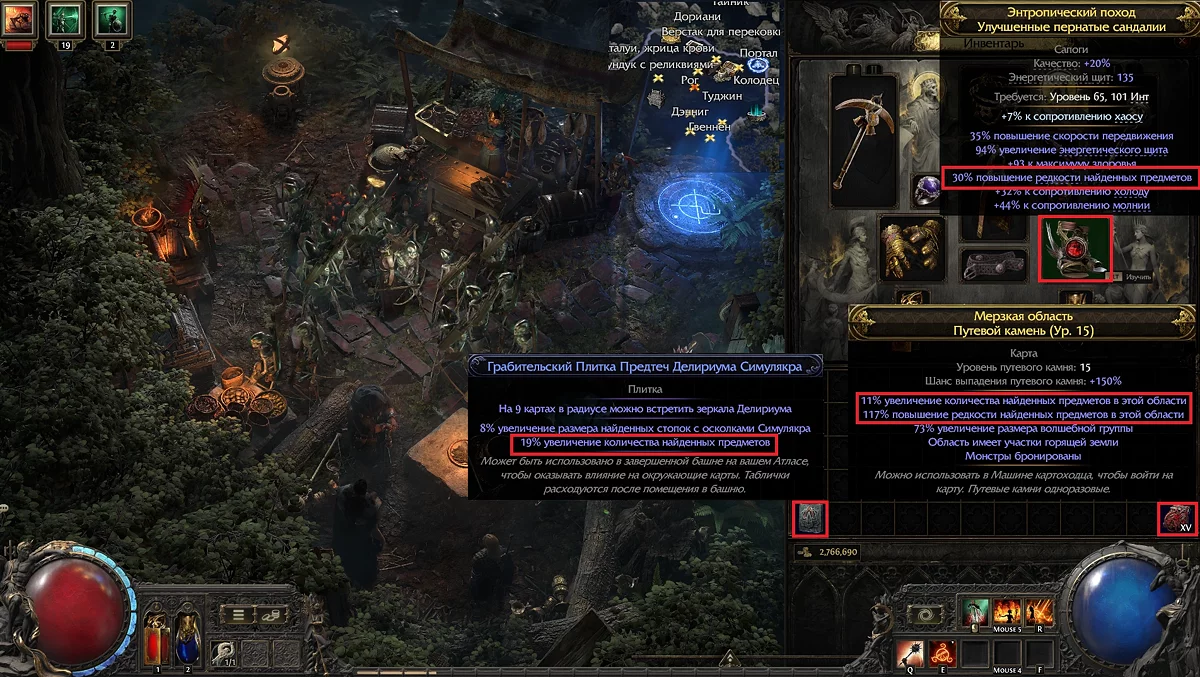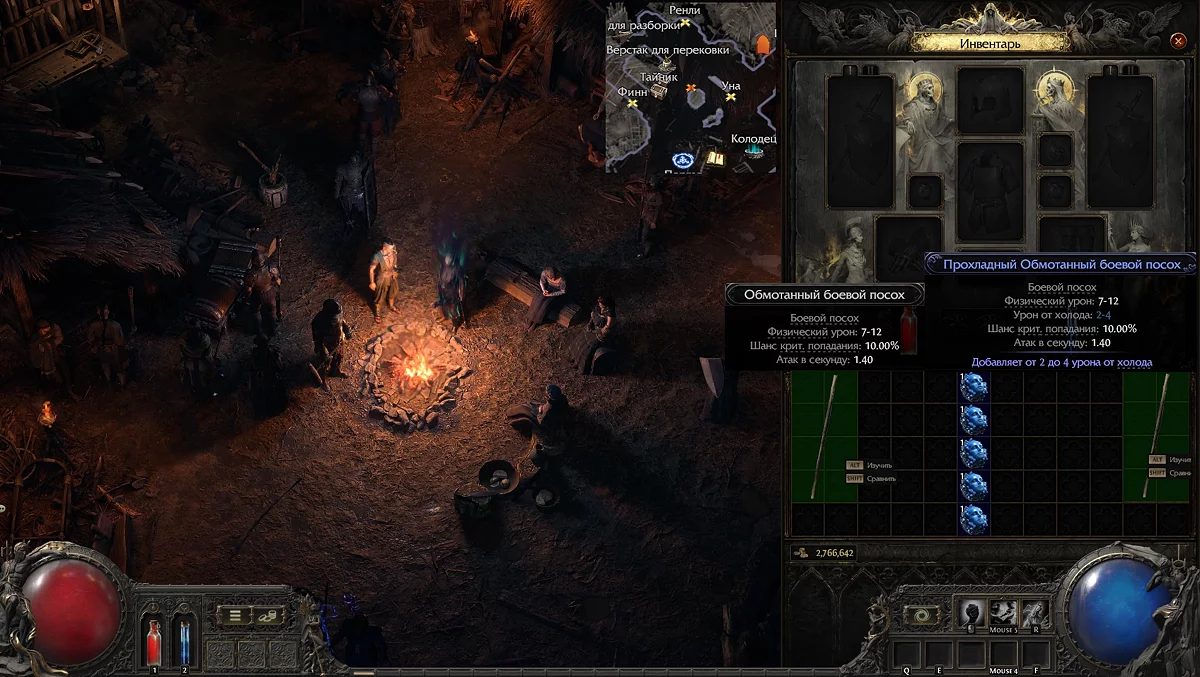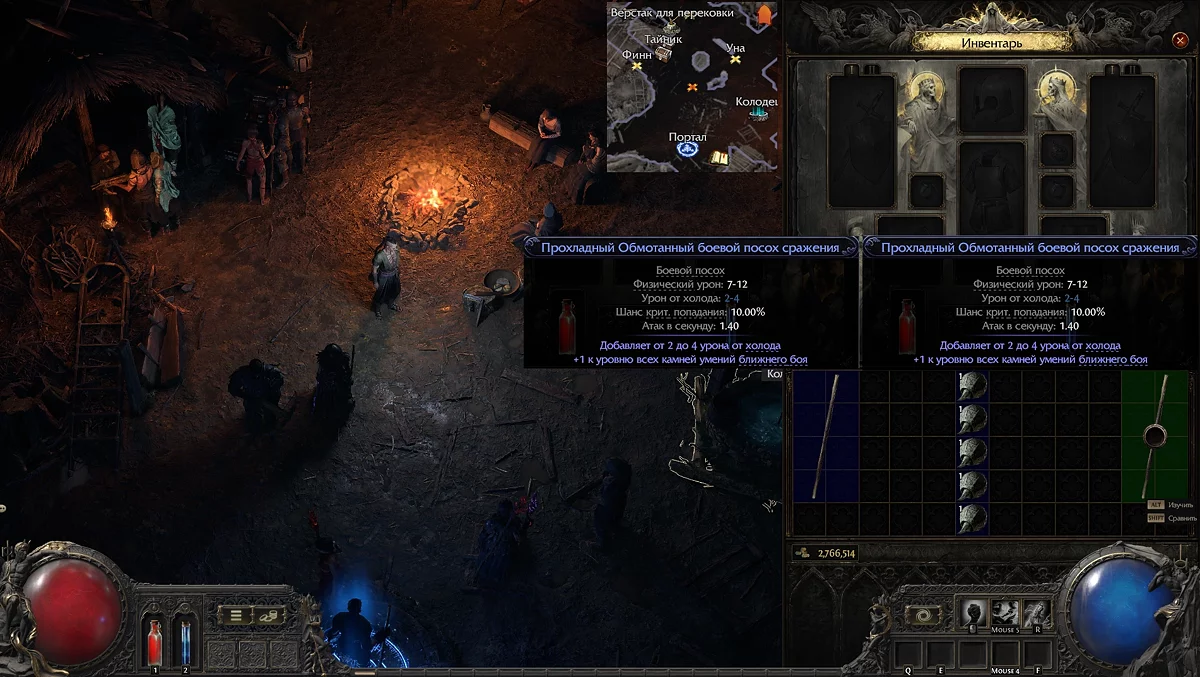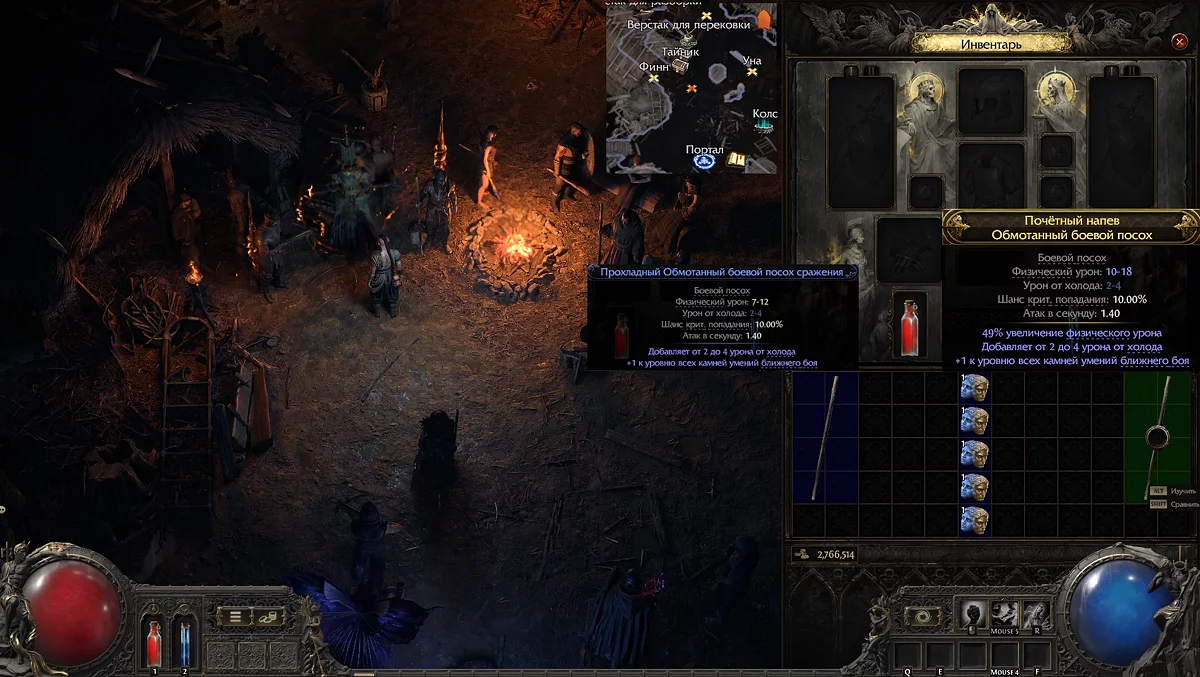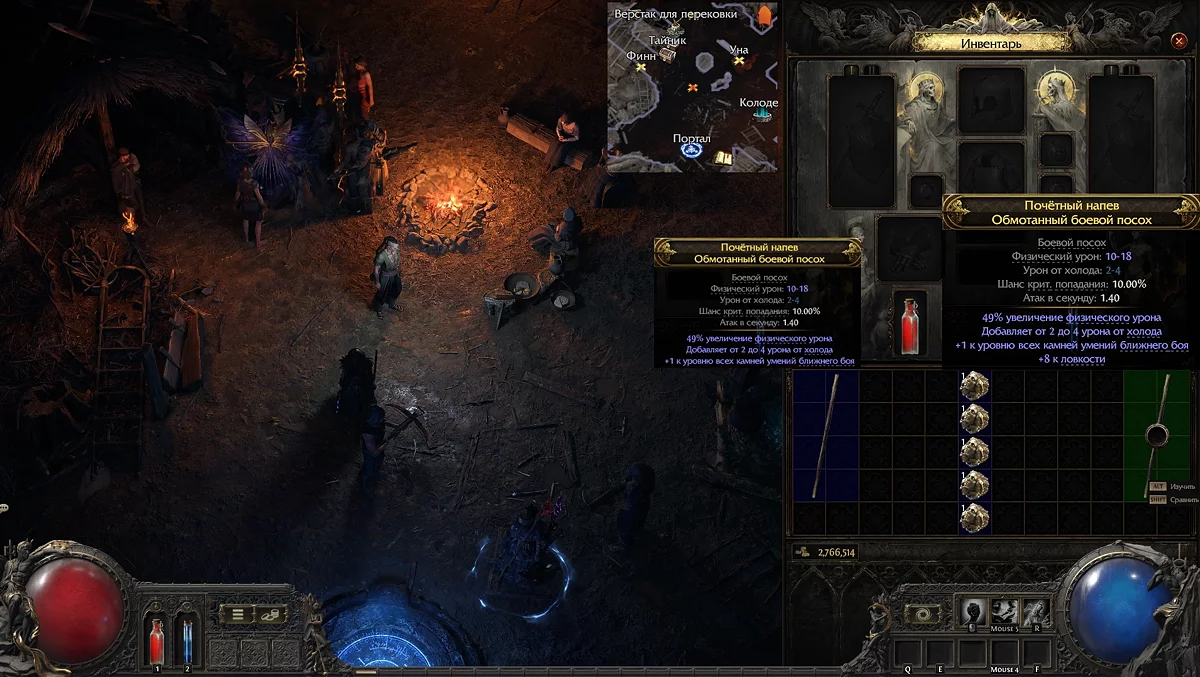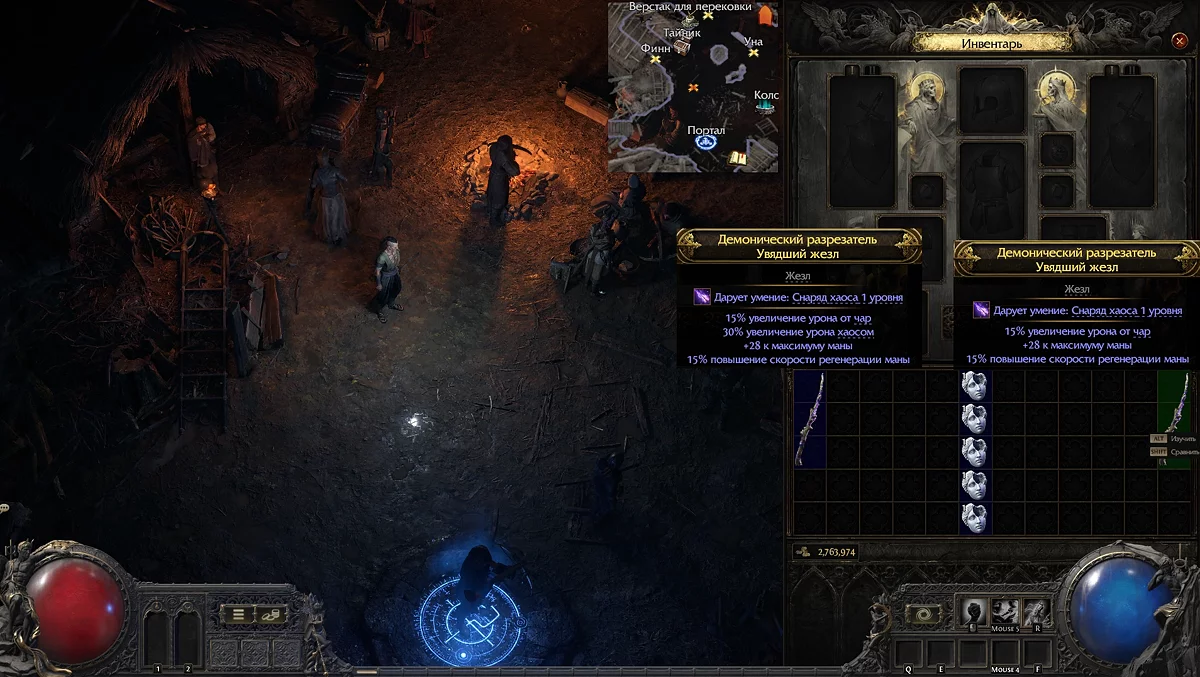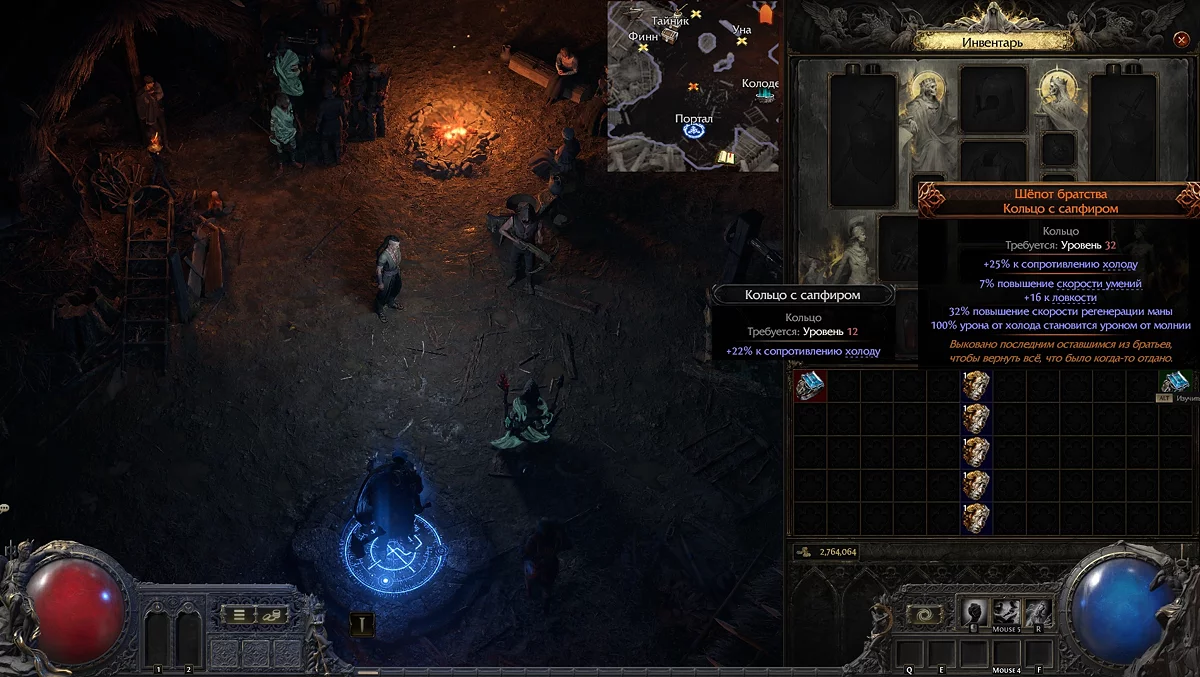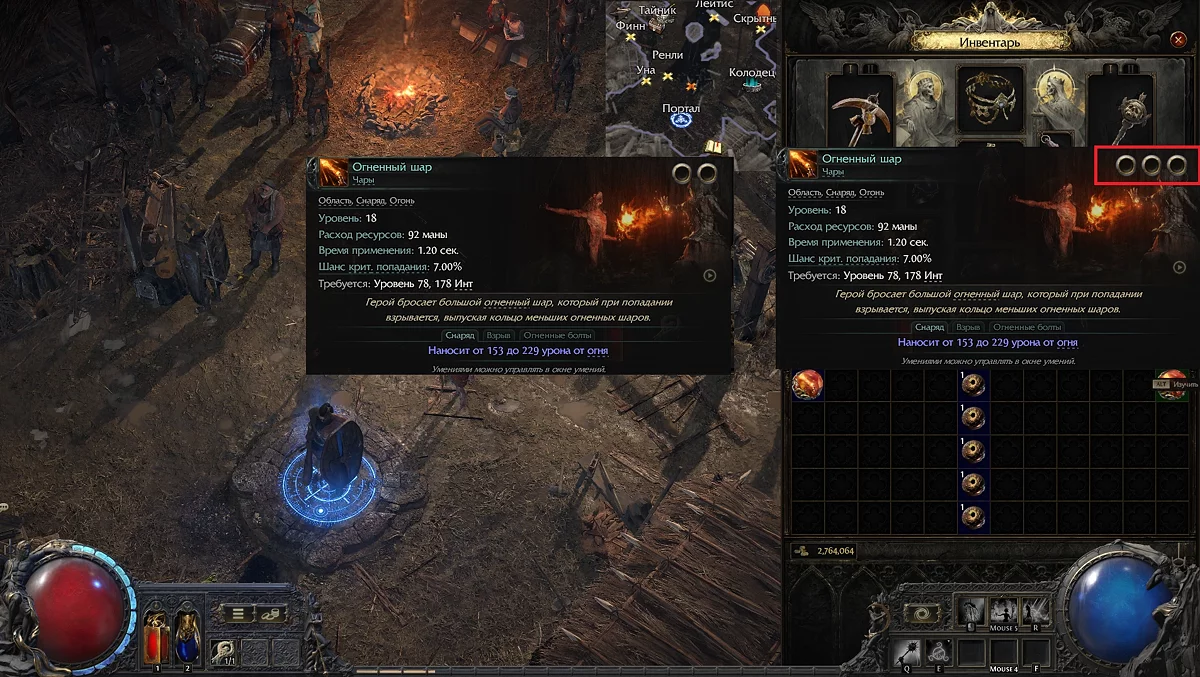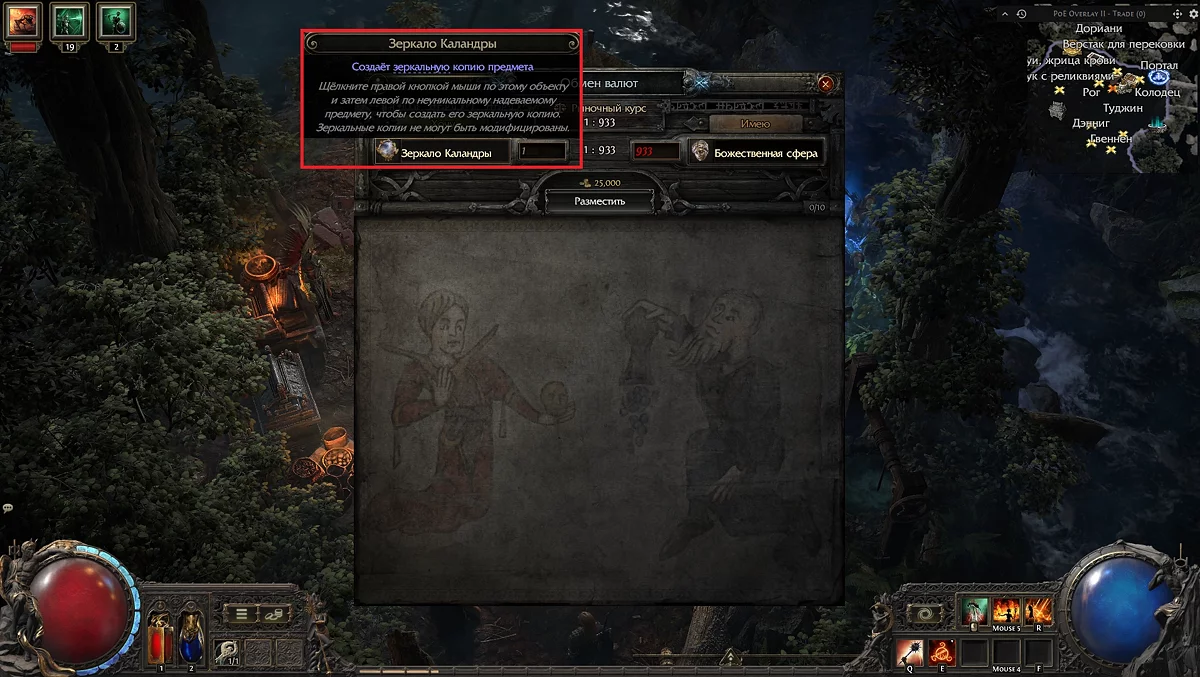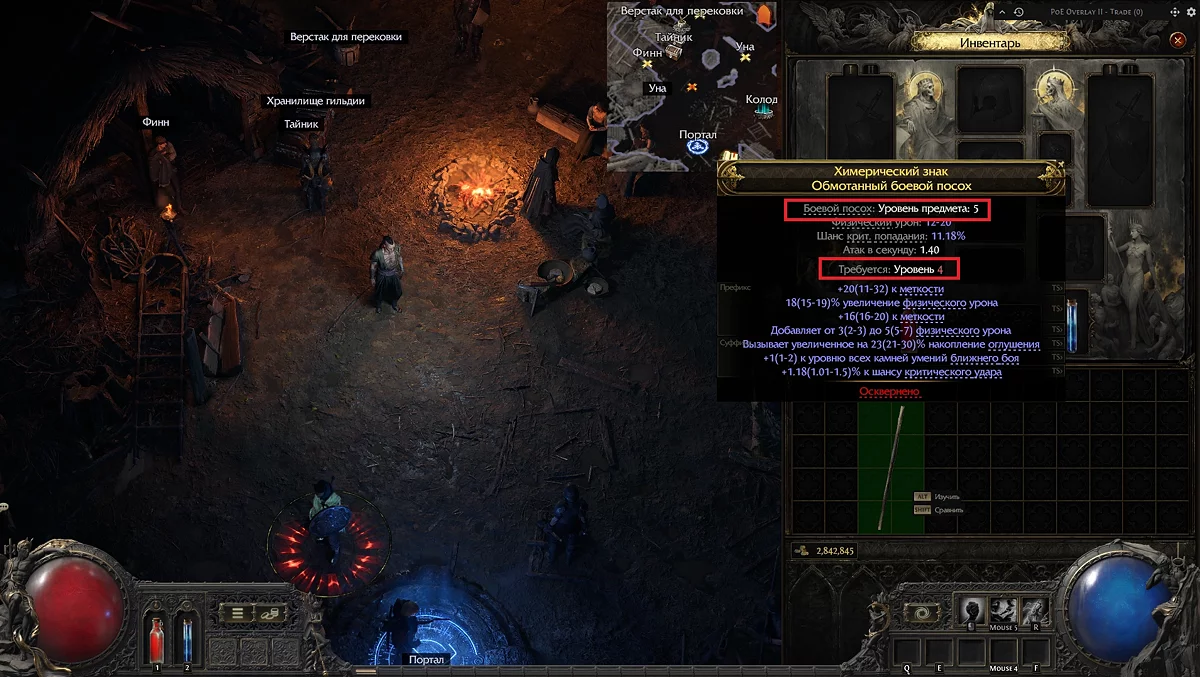Path of Exile 2 Orbs Guide: Types, Uses, and Finding Tips
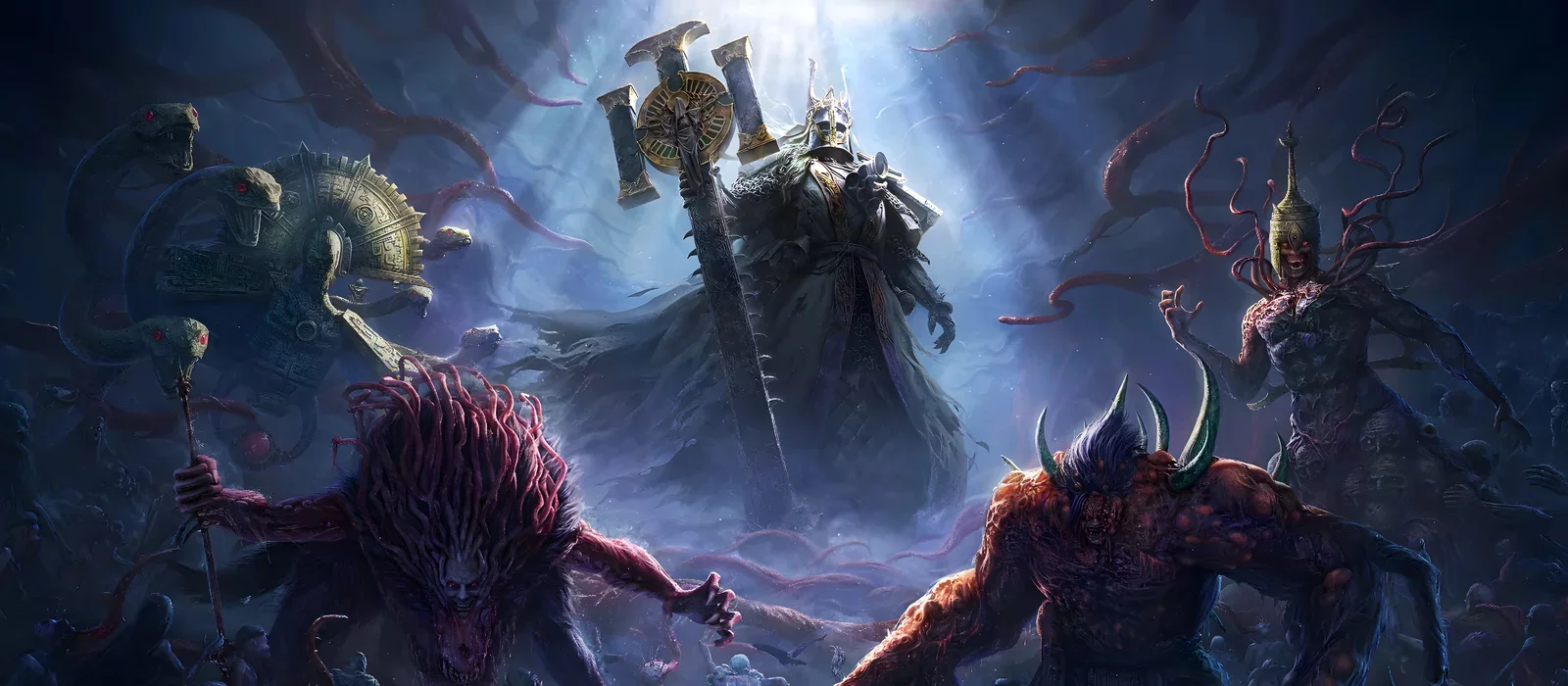
The game Path of Exile 2 is built around currency that players use for trading, crafting new items, and enhancing them. This currency is called Orbs. There are many types of orbs, and each type has its own effect. In this guide, we will take a detailed look at what orbs are for, their effects, and how to use them.
Types of Modifiers
The main mechanic of orbs is adding and changing modifiers on items. To better understand how orbs work, it's worth first understanding the types of modifiers that items can have.
Implicit and Explicit Modifiers
- Implicit Modifier is indicated at the very top and is separated by two horizontal lines. This modifier is tied to the item's name. For example, all Chain Belts will have a reduction in flask charge usage. Note that an item may not have an explicit modifier.
- Explicit Modifiers are always listed below implicit ones. Magical items can have up to two such modifiers (one prefix and one suffix). Rare items can have up to six (up to three prefixes and up to three suffixes).
Prefixes and Suffixes
Explicit Modifiers are divided into two categories — prefixes and suffixes. This division exists for item modifier balance. Prefixes are the first three implicit modifiers of an item, and suffixes are the three lower ones.
Why is it important to understand this division? For example, if we use an Orb of Annulment and remove +197 to armor from a belt, we will know that we removed a prefix. This means that using an Exalted Orb on the item will not give us an elemental resistance modifier, as they belong to suffixes and there are already three on the belt, which is the maximum.
Enchantments
The enchantment effect is highlighted in light font and is located above the implicit modifier. The main source of enchantment is runes, which we insert into item sockets, and Vaal Orbs.
How to Use Orbs
- Right-click on the orb. The orb will attach to the cursor.
- Hover the cursor over the desired item and left-click.
After use, the orb disappears and cannot be retrieved.
How to Obtain Orbs?
Orbs drop from monsters as regular loot. The stronger the monster, the higher the chance of dropping more valuable orbs. Most often, you will get orbs from bosses and elite mobs (mobs with gold font in the name). The second source of orbs is activities on atlas maps in the endgame (such as breaches, rituals, expeditions). Orbs also drop in Chaos Trials and Sechem.
The chance of orb drops is increased by raising the rarity and quantity of found items. Rarity increase can be found as modifiers on equipment, waystones, and tower plates. Modifiers that increase the quantity of found items are available on waystones and plates.
Description of Orbs
Orb of Transmutation
- Effect: Transforms a normal item into a magic item with 1 modifier.
- Rarity: Very common.
Used in the early stages of crafting. Most useful in the early stages of the game to upgrade normal (white) items to magic (blue) ones, as well as to upgrade mana and HP flasks. Don't be afraid to use them — they are common and have low value among players.
Orb of Augmentation
- Effect: Adds a random modifier to a magic item.
- Rarity: Very common.
Used to add an additional modifier to a magic item. Use them after an Orb of Transmutation or on rare items with one modifier. Since these orbs drop frequently, feel free to use them as needed. They are also used in the later stages of the game before upgrading a magic item to rare quality so that the rare quality item immediately has 1 more modifier.
Artificer's Orb
- Effect: Adds a rune socket to melee weapons or armor.
- Rarity: Uncommon.
The main use is adding a rune/core socket to melee weapons and armor. With this orb, you can add a maximum of 2 sockets. Note that a rune socket cannot be added to magic weapons (scepters, wands, magic staves).
Regal Orb
- Effect: Upgrades a magic item to a rare item, adding 1 modifier.
- Rarity: Common.
When upgrading a magic item to rare, the maximum number of modifiers increases from two (1 prefix and 1 suffix) to six (3 prefixes and 3 suffixes). Before using this orb, make sure the magic item has two modifiers, or use an Orb of Augmentation to add a second modifier.
Exalted Orb
- Effect: Adds a random modifier to a rare item.
- Rarity: Common.
Used to add an additional modifier to a rare item without removing existing ones (maximum 6 modifiers). They are also the main currency for trading between players. It's best to use them on equipment items that already have modifiers useful to you to make the item even stronger.
Vaal Orb
- Effect: Unpredictably alters an item and applies the corrupt status.
- Rarity: Fairly common.
Vaal Orbs are used in the final stage of crafting, as their application applies the corrupt status to the item. Items with this status can no longer be altered by orbs.
Possible effects of Vaal Orb:
- Adding an enchantment.
- Adding an additional rune slot. Adds a third socket if the item already has two.
- Changing the numerical values of modifiers (up to half of the modifiers are changed).
- Increasing or decreasing modifier values on unique items.
- Gaining the corruption status without other changes.
When used on skill gems:
- Increasing/decreasing the level by 1.
- Increasing/decreasing the number of sockets for support gems (maximum 5).
- Increasing/decreasing the quality of the skill gem (maximum 23%).
- Gaining the corruption status without other changes.
Orb of Alchemy
- Effect: Transforms a normal item into a rare item with 4 modifiers.
- Rarity: Uncommon.
The main use is creating a rare item with 4 modifiers from a normal quality item. Most useful in the early stages of the game. If you're lucky to find one of these orbs during the campaign, use it on normal quality items with high base attribute values. Since these orbs are significantly rarer than the previous ones, use them with caution.
Chaos Orb
- Effect: Replaces a random modifier on a rare item.
- Rarity: Uncommon.
Chaos Orbs can be used as a way to significantly improve an item. We recommend using these orbs on items that already have at least 3 useful modifiers but also have a modifier that is not beneficial. Use them with caution, especially during the campaign.
Do not risk items that you have already equipped on your character, as the Chaos Orb can remove a good modifier and replace it with a bad one. It's better to save them for medium items that can become powerful upgrades if you're lucky. Among players, these orbs are quite valuable, so if necessary, they can be exchanged for Exalted Orbs — the main currency of the game.
Orb of Annulment
- Effect: Removes a random modifier from an item.
- Rarity: Very rare.
Used to remove a random modifier from an item. Use them to free up space for a new modifier if the item has reached its limit.
Orb of Chance
- Effect: Unpredictably transforms a normal item into a unique one or destroys it.
- Rarity: Very rare.
Used to obtain unique items from normal quality items. In most cases, the item will be destroyed, but with a small chance, the normal item will transform into a unique item of the same type. The item's level does not affect the chance of success.
Most profitable ways to use the Orb of Chance:
- Star Amulet > Astramentis (one of the most expensive unique items).
- Sapphire Ring > Shard of Dreams.
- Heavy Belt > Headhunter.
Jeweller's Orb
Effect: Used to increase the number of sockets for support gems in skill gems.
There are three versions of this orb: small, large, and perfect. They respectively add a third, fourth, and fifth socket for a support gem. Small and large orbs have low value, so don't hesitate to use them immediately. Perfect orbs are quite expensive, so they should be used on skills you use most often and that will gain maximum enhancement from a fifth support gem. Start by choosing the appropriate support gem for the necessary skill, and only then add the fifth socket.
Divine Orb
- Effect: Changes the numerical values of modifiers on an item.
- Rarity: Very rare.
Divine Orbs are the second main currency for trading between players. They are used to reroll the numerical values of modifiers on items. For example, if you have an item with 20% cold resistance, using a Divine Orb will keep the cold resistance modifier on the item, but the value might increase to 35% or decrease to 10%. The effect applies to all explicit modifiers on the item. The numerical value changes randomly but remains within the minimum and maximum range available for that item. Such orbs are extremely difficult to obtain, so use them with caution. It is best to use them on rare items that already have a combination of 5-6 good modifiers, but with low numerical values.
Mirror of Kalandra
- Effect: Creates a copy of another non-unique item.
- Rarity: Incredibly rare.
This is a rare and one of the most coveted items in the game. Many players do not receive a mirror even after 5000 hours of play. If you are lucky enough to find one, do not use it unless you are 100% sure of your actions. Mirrors are used to copy perfect items that exceed the value of the mirror itself.
Orbs should be used not only on gear items
Orbs can also be used on many other items besides gear. Items worth enhancing with orbs include:
- Jewels.
- Talismans.
- Mana and HP flasks.
- Atlas travel stones.
- Atlas map tablets.
Keep in mind that not all types of orbs can be used on the listed items. If an orb can be used on an item, a golden frame will appear around items available for enhancement after selecting the orb.
Example of using orbs
For clarity, let's consider a specific example. We have just started playing as a monk and would like to make a good staff for the early game. We already have a normal quality staff, so we'll start with that.
- Use an Orb of Transmutation. We get a rare quality staff with one modifier.
- Use an Orb of Augmentation. We get a second modifier.
- Use a Regal Orb. The item gains rare quality and a third modifier.
- Add three Exalted Orbs to get the maximum number of modifiers on a rare item.
- Use a Vaal Orb. After the Vaal Orb, the item received the corrupted status, and we can no longer use other orbs on it.
Before adding a Vaal Orb to a combat weapon or armor, it is worth adding rune sockets using Chromatic Orbs, as you cannot add sockets to a corrupted item. You can add runes to sockets or replace them even after corruption.
Please note: After using an Orb of Transmutation, the character level requirement increased. This can happen after enhancing with any orb and is related to the item level. Do not confuse it with the level required to use the item.
In the game, you can hover over equipment and hold the Alt key to get more detailed information about the item. For example, the level of this staff is 5, and it cannot be changed. The item level determines what modifiers it can receive upon enhancement. With the emergence of new modifiers, the character level requirements will increase until they reach the level of the item itself.
Other guides
- Ultimate Witch Build Guide for Path of Exile 2
- Complete Path of Exile 2 Walkthrough: All Acts Guide & Gameplay Tips
- Path of Exile 2: Guide to All Ascendancy Classes and How to Choose the Best One
- Ultimate Guide: How to Increase Spirit in Path of Exile 2
- Path of Exile 2: Best Classes for Beginners
- Path of Exile 2 Trading Guide: Player & NPC Trade Tips
- Elon Musk, Préparez les Boosters — Path of Exile 2 Annonce une Mise à Jour Majeure Présentant la Classe Chasseresse
- Path of Exile 2 pourrait rester en accès anticipé jusqu'en 2026
